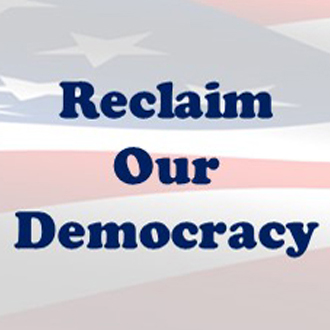“A nation divided against itself cannot stand.” – Abraham Lincoln, June 16, 1858
The population is politically separating in a way we have not seen since the Civil War. Levitsky and Ziblatt credit the weakening of our democracy to this extreme polarization. More than ever, Americans are concerned about political polarization. According to an article in The Fulcrum, public Agenda’s most recent Hidden Common Ground survey found that 93 percent of Americans say it is important to reduce divisiveness in the United States. Over one-third say that partisan divisiveness has affected their personal lives. In our polarized political climate, fixing elections is a major threat.
Politics
All the ways we see the world and see ourselves have become stacked and supercharged behind our political identities. Our two main political parties used to have both liberal and conservative members, but over time the Democratic Party has become more liberal, urban, well educated, religiously diverse; while the Republican Party has become more conservative, and is largely White, Christian and rural. This has increased the strength of these party identities. The outcome of an election has become more important for people, so they become much more defensive about their party and much more invested in the election; and they think of the other party’s rule as illegitimate and not merited.
So even if popular policies are enacted it is very difficult to get people who are strongly identified with their party to vote for the other party – they would need to be extraordinarily pleased in their own life based on what the government is doing or extraordinarily displeased. It almost becomes a pre-determined choice, regardless of the issues at stake.
And polarization is escalating. As the parties diverge, the stakes get higher; rhetoric intensifies; the other side is seen as an existential threat; and voters demand radical political action. Then the cycle repeats itself. Author Lee Drutman refers to this as the two-party doom loop.
It’s important to note that members of each party have dramatically incorrect assumptions about members of the other party. According to the findings in More in Common’s yearlong survey of American attitudes toward teaching history, “Both Democrats and Republicans alike grossly overestimate whether members of the opposing party hold extreme views.” On issue after issue, there is far more agreement than disagreement on even the most hot-button issues surrounding race, identity, and history.
Media
One of the major reasons for these incorrect assumptions is the media. Our media makes the polarization worse. A January 28, 2020 article in Vox contains an excerpt from Ezra Klein’s book, Why We’re Polarized. It addresses the role that media has played. The news media isn’t just a bit player in politics, it’s arguably the most powerful actor. It’s the primary intermediary between what politicians do and what the public knows.
The old line on local reporting was “If it bleeds, it leads.” For political reporting, the principle is “If it outrages, it leads.” And outrage is deeply connected to identity — we are outraged when members of other groups threaten our group and violate our values. As such, polarized media doesn’t emphasize commonalities, it weaponizes differences; it doesn’t focus on the best of the other side, it threatens you with the worst. The more political media people consume, the more negatively they feel about the other party.
What Can We Do to Reduce Polarization?
To address the divisions in our society, some democratic innovations are emerging. There is evidence that structuring positive, collaborative interactions can promote understanding. A group called Braver Angels conducts skill building workshops and highly structured and facilitated Red/Blue debates. They have been invited to work with Congress, starting with the Problem Solvers’ Caucus in the House composed of 35 Democrats and 35 Republicans. They are taught the process Braver Angels uses to have debates – Braver Politics – that asks “What can we propose that we believe the other side can agree to?”
Reducing Polarization All By Yourself: Kamy Akhavan states “In today’s political climate we don’t respect the other side: We don’t care what they have to say.” “Our immediate reaction goes to defense. It is ‘stop that side'”. Kamy offers five personal tips to depolarize:
- Listen to understand not to judge.
- Commit to speak with and learn from others you disagree with.
- Seek Opposing Views. Is your sense of what the other side is saying a mere characterization of what they say?
- Interpret Generously. Don’t assume that those with different ideological and cultural views are bad people.
- Superordinate. Instead of pursuing common ground, recognize our underlying shared values. Seek out what you have in common with your workers, colleagues, and—yes— political opponents.
